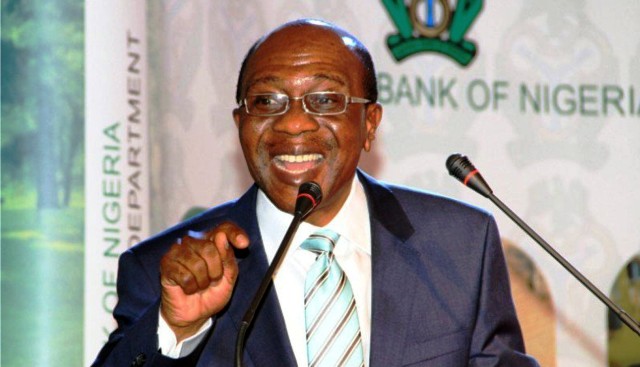Business
Smuggling, Dumping Challenge To Economic Policies – CBN

Governor of Central Bank of Nigeria (CBN), Mr Godwin Emefiele says the bank, with some stakeholders, have identified smuggling and dumping as major challenges sabotaging the Nigerian economic policies.
The governor said this on the sideline of a consultative roundtable titled, “Going for Growth”, with some economic stakeholders in Lagos.
The Tide source reports that the essence of the rountable was to encourage participants to highlight important building blocks that will lead to greater economic growth in the country.
It also involves the CBN Governor listening to their ideas and views on how productivity and investments by companies operating in Nigeria can be improved.
Others include how to reduce the nation’s dependence on imported goods and increase exports of non-oil goods and services.
Emefiele said: “We have identified smugglers and people dumping goods as those who sabotage those policies and we decided that we will deal with them.
“The strategy that we came up with is that we will not bother ourselves with them.
“There is an agency of government that is responsible for border control and if these people pass through the border control, we would use the instrumentality of being the regulator of the banking system to make sure that we get the banks to provide all details about them.
“We investigate their accounts and if they are found in economic sabotage, boarding, smuggling and dumping in Nigeria, we would not only block their accounts, we would close their accounts in all the Nigerian banks simultaneously”.
He also said the CBN asked commercial banks to close those companies’ accounts and those of the top members of such entities.
The bank chief said CBN in due course would come up with the names of those that had been identified.
“We want to be sure that we come up with something that is credible and cannot be denied.
“At this stage we have already blocked the accounts of some in the textile and rice and palm oil company.
“We are investigating those accounts and as information becomes clearer, we can clearly say that they committed the offence.
“We would then go to the next level which is to forbid any Nigerian bank from maintaining accounts for these people,” he said.
Business
Fidelity Bank To Empower Women With Sustainable Entrepreneurship Skills, HAP2.0
Business
President Tinubu Approves Extension Ban On Raw Shea Nut Export
Business
Crisis Response: EU-project Delivers New Vet. Clinic To Katsina Govt.
-
Maritime4 days ago
Nigeria To Pilot Regional Fishing Vessels Register In Gulf Of Guinea —Oyetola
-

 Sports4 days ago
Sports4 days agoGombe-Gara Rejects Chelle $130,000 monthly salary
-
Maritime4 days ago
Customs Declares War Against Narcotics Baron At Idiroko Border
-

 Sports4 days ago
Sports4 days agoTEAM RIVERS SET TO WIN 4×400 ” MORROW” …Wins Triple jump Silver
-
Maritime4 days ago
NIMASA,NAF Boost Unmanned Aerial Surveillance For Maritime Security
-

 Sports4 days ago
Sports4 days agoNPFL Drops To 91st In Global League Rankings
-

 Sports4 days ago
Sports4 days agoNIGER DELTA GAMES PANACEA TO YOUTH DEV”
-

 Sports4 days ago
Sports4 days agoNPFL Impose Fines On Kwara United Over Fans Misconduct

